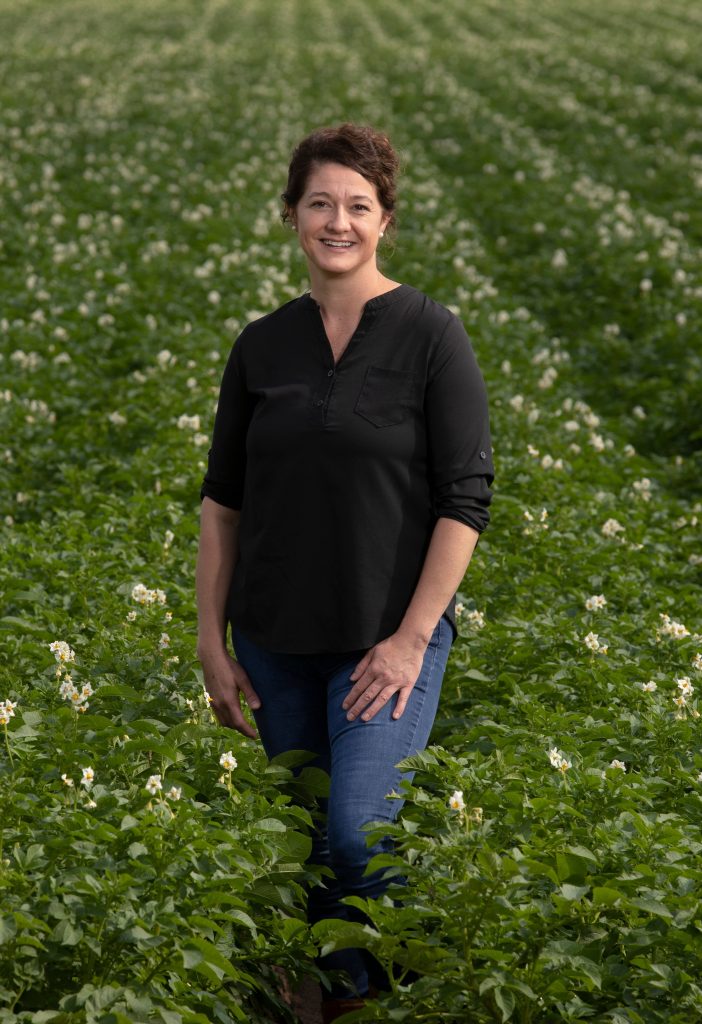Q&A: Amanda Gevens shares reflections from her time as department chair

Amanda Gevens, professor and extension specialist in the Department of Plant Pathology, served as department chair for six years, from July 1, 2019 – June 30, 2025. Since joining CALS in 2009, her research program has focused on potato, vegetable and specialty crop pathogen ecology, diagnosis and integrated management. She prioritizes outreach – sharing disease management approaches with growers and allied industry partners – as well as student mentorship.
In this Q&A, Gevens shares some of her experiences and thoughts from being chair. This article is part of an ongoing series designed to shed light on the opportunities, challenges and satisfactions of serving in this leadership role.
Describe an experience that helped prepare you for being department chair.
I believe my extension experience prepared me well for chair service. As an extension-funded faculty member, the success of my integrated research, mentoring and extension programs has been reliant upon solid communication and responsiveness to stakeholders, including students, colleagues, growers, vegetable processors and other allied industry partners. Further, extension programming requires integrated orchestration of human, financial and infrastructural resources while nurturing long-term relationships of trust and commitment. Chair service requires many of these same integrations, coordination and expectations. And, like extension with service, chair service leads to the success of something greater than oneself.
What has surprised you the most – in a positive way – since becoming chair?
I greatly valued the opportunity to more deeply engage with and learn about our community members, and other affiliates of the department. We have a highly talented and creative group of scientists!
What are the biggest challenges facing UW–Madison in your area?
I think that the UW–Madison, and all of academia, is faced with a grand challenge of sustaining the continuity of our vital scientific endeavors. Public research has long driven innovation that directly benefits society. Erosion of investment, understanding and trust in science weakens our ability to address urgent challenges like pests and diseases, but also threatens our capacity to train, attract and retain the next generation of scientists who would apply their creativity to real-world agricultural solutions.
What can be done to tackle these challenges?
We are fortunate to be guided by the Wisconsin Idea, the belief that knowledge and discovery should serve the public beyond the boundaries of campus. It’s important to stay in touch with the needs of the agricultural industries that we serve to ensure that the research questions addressed in our programs have a practical aim. It’s also important to take advantage of diverse funding opportunities and to collaborate with creative scientists both inside and outside of the plant pathology field to synergize efforts toward innovative solutions.
What is the most satisfying thing you have been able to accomplish as chair so far?
It has been an honor to serve as chair during milestone moments for our students and faculty, such as the welcoming of new assistant professors, the promotions of new associate professors or full professors, the retirement of full professors, and the initiation and graduations of students. Being present for, acknowledging and supporting our scholars as they thrive and transition has been deeply humbling and significant to me.
What are your plans after your time as chair and how do you think your time serving as chair will impact the next stage of your career?
I am more deeply engaging with my research and extension programs to continue addressing key disease challenges in Wisconsin potatoes and vegetables, and I’m working to establish new projects. And I’m still very involved in service. I’ll be serving as the plant pathology department’s associate chair, and I’ll continue to be the administrative director of the Wisconsin Seed Potato Certification Program.
What is something about your department that you wish more people knew (such as a fun fact, piece of history, or point of pride)?
Plant pathology has many points of pride! We were founded in 1910 in response to a cabbage black rot disease epidemic. Our department is one of the oldest and most respected plant pathology departments in the world. To this day, we continue in our commitments to agriculture in supporting healthy crops for food, feed, fiber and fuel. We have been successful in graduate mentoring, producing leaders in academia, government and industry across generations. Over the years we have proudly celebrated seven fellows of the National Academy of Sciences, including our first department chair (L.R. Jones), demonstrating our longstanding scientific leadership.

